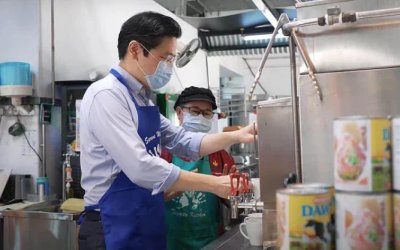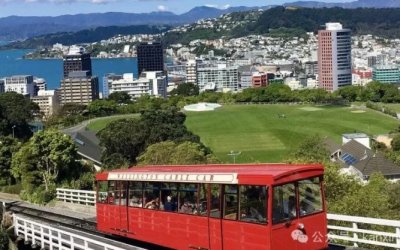新加坡衛生部:我們很需要醫護人員!
2024年3月6日,新加坡衛生部高級議會秘書拉哈尤·瑪贊女士在國會上關於醫護人員福祉的發言。
以下內容為新加坡眼根據國會英文資料翻譯整理:
衛生部高級議會秘書(拉哈尤·瑪贊女士):主席先生,讓我從醫療人力資源開始。
賽義德哈倫醫生指出,醫護人員數量需要跟上醫療需求的增長。
我們將人口需求因素納入醫療人力資源規劃中。在過去的10年里,我們將醫療人力資源增加了約40%,並且在本地高等院校招收了與此相似規模的醫療學生,2023年共招收了3600名醫療學生。我持續地增加醫療工作人員,同時通過創新的醫療服務方式來調節需求。
為此,我們將繼續與公共醫療機構和社區關懷部門合作,吸引和留住醫護人員。
上個月,我們推出了挽留計劃ANGEL(Award for Nurses』 Grace, Excellence and Loyalty)。這將幫助我們提升這一職業的吸引力,留住我們已有的護士。
我們正在與專職醫療人員合作,更全面地了解他們的需求,並共同實現他們職業的願景,以制定國家聯合保健戰略。我們正在推進PharmForce計劃,旨在研究人力資源發展,塑造藥學實踐以滿足人口需求,促進健康,增強我們的藥學人力資源的韌性,並提升該職業的能見度和認可度。
我們公共醫療系統中的運營和支持人員發揮著重要作用。我們的醫療集群已經啟動了工作重新設計的計劃,以增強職業價值主張,並更好地吸引和留住他們。
公共醫療機構將繼續保持薪資競爭力在各方面。例如,2023年,護士、專職醫療人員和藥劑師的起薪提高了高達12%。
我們最近也為社區關懷部門制定了薪資指導方針,以保持薪資的競爭力,並為求職者和該行業的工作者提供更大的透明度。這些指導方針將定期進行審查,以確保其與時俱進。我們希望這些指導方針能夠幫助吸引和留住各個職位群體的工作者,包括後勤人員。
我們將繼續向社區關懷組織和社區關懷部門提供資金支援,以幫助它們保持薪資競爭力。
我還強調了確保我們醫療工作者健康的重要性。我感謝洪維能先生和黃國光先生對初級醫生工作量和護士休息時間的關注。
我們正在與醫療集群合作,制定措施來支持醫護人員的福利和健康。對於醫生來說,這將包括更清晰的工作時間指導方針,對工作流程的審查以提高效率和平衡工作量,並增強對員工的支持。由於不同醫療機構的背景不同,這些變化可能需要一些時間來實施。
為了確保護士有足夠的休息時間,我們的醫療集群不再積極地安排護士按照PAPA輪班模式工作。然而,在出現操作上的緊急情況時,比如員工突然缺席,而病房需要確保值班護士的技能組合以保障病人安全時,偶爾可能會發生這種情況。當出現這種情況時,已經採取措施支持受影響的護士,比如將他們安排在當周的較短輪班上,並允許靈活調換班次。
在2023年,我們將4,000名新護士引入我們工作隊伍的國家目標,因此我們可以期待情況得到改善。
此外,我們宣布了預防醫護人員濫用和騷擾的三方框架,並在未來一年將發布額外的宣傳活動以提高意識。

以下是英文質詢內容:
: Senior Parliamentary Secretary Rahayu Mahzam.
The Senior Parliamentary Secretary to the Minister for Health (Ms Rahayu Mahzam): Mr Chairman, let me begin with healthcare manpower.
Dr Syed Harun has rightly pointed out that healthcare manpower needs to keep pace with the growing demand for healthcare.
We factor in population needs into the planning of our healthcare manpower. Over the last 10 years, we grew our healthcare manpower by about 40% and increased our local healthcare student intakes at our IHLs by a similar margin, translating to a combined intake of 3,600 healthcare students in 2023. We will continue to grow our healthcare workforce sustainably, while moderating demand through innovative ways of delivering care.
To this end, we will continue to work with public healthcare institutions (PHIs) and the community care sector to attract and retain manpower Across the board.
For nurses, we announced the Award for Nurses』 Grace, Excellence and Loyalty (ANGEL) scheme last month. This would allow us to improve the attractiveness of the profession and retain the nurses we have.
We are engaging Allied Health Professionals to better understand their needs and to co-create the vision for their professions, with a view to come up with a National Allied Health Strategy. We are working on the PharmForce initiative to look into manpower development, shaping pharmacy practice to meet population needs, promoting wellness and building resilience of our pharmacy workforce and increasing visibility and recognition for the profession.
Operations and support staff play important roles in our public healthcare system. Our healthcare clusters have embarked on job redesign initiatives to enhance the career value proposition and better attract and retain them.
Across the board, PHIs will continue to keep salaries competitive. For example, starting salaries for nurses, allied health professionals and pharmacists were increased by up to 12% in 2023.
We have done the same for the community care sector with the recent salary guidelines to keep salaries competitive and provide greater transparency to jobseekers and workers in the sector. These guidelines will be reviewed regularly to ensure that they are up-to-date. We hope that the guidelines will help attract and retain workers across all job groups, including support staff.
We will continue to provide funding to community care organisations and PHIs to support them in keeping their salaries competitive.
I also stressed the importance of ensuring the well-being of our healthcare workers. I thank Mr Ang Wei Neng and Mr Louis Ng for their concern on workload of junior doctors and rest time for nurses.
We are working with clusters on measures to support the welfare and well-being of healthcare workers, including doctors and nurses. For doctors, this will include clearer work hour guidelines, reviews on work processes to improve efficiency and workload balancing and to enhance support for staff. As the context differs from healthcare institutions, these changes may take time to effect.
On ensuring sufficient rest for nurses, our healthcare clusters no longer actively roster nurses on the PAPA shift pattern. However, this may happen occasionally when there are operational exigencies, such as when there is unplanned absence amongst staff and the ward needs to ensure the appropriate skills mix amongst nurses on duty to ensure patient safety. When this happens, measures are in place to support affected nurses, such as by rostering them on shorter shifts that week and allowing flexibility for swaps.
In 2023, we also exceeded our national target of bringing 4,000 new nurses into our workforce and, with that, we can expect the situation on the ground to improve.
Additionally, we announced our tripartite framework on the prevention of abuse and harassment of healthcare workers and, in the coming year, we will be putting out additional publicity to raise awareness.
CF丨編輯
CF丨編審
新加坡國會丨來源
新加坡國會丨圖源























